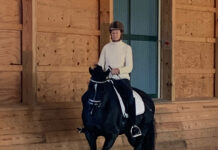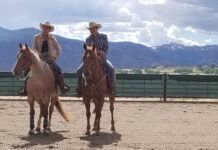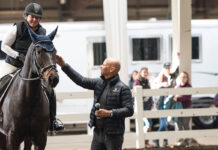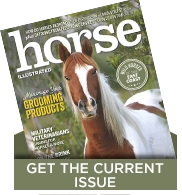Do you love to talk about horses? Do you enjoy people and sharing your love of horses with them? If you have no fear of public speaking and are enamored with equines, a career as an equine instructor at a college or university may be the perfect way to combine your passion with your profession!
Horse Illustrated: What is your title and who do you work for?
Elizabeth LaBonty: I am a Lecturer and Internship Coordinator within the Ag Equine Programs at the University of Kentucky (UK).
HI: How long have you been teaching in higher education?
EL: 11 years
HI: How did you decide that teaching students was what you wanted to do?
EL: My first semester of freshman year at the University of Nebraska I had the most amazing professor for my Animal Science 101 class. It was an 8 a.m. class and Dr. Gilster was unlike anyone I had ever met. If you can get freshman excited to learn about animal husbandry on Mondays, Wednesdays and Fridays at 8 a.m., you’re pretty amazing! Dr. Gilster truly loved what he did and it showed. He learned everyone’s names and was effortlessly engaging, funny and enthusiastic. From that moment on, I knew I wanted his job.
HI: What did you anticipate doing when you were younger?
EL: I loved animals, so I always thought the only option was to be a vet.
HI: What is your educational background?
EL: My Bachelors of Science is in Animal Science from the University of Nebraska (UNL); my Masters is in Animal Biology from University of California at Davis, and my PhD is in Higher Education Evaluation and Policy from the University of Kentucky.
HI: What is your background with horses? Do you still own horse? If so, what do you do with them?
EL: I grew up riding horses on our friends’ farm in Montana. From there, I spent my college summers working as a wrangler on dude ranches and teaching lessons to get my horse fix. I have owned several horses in my life. My first one after college–who which I still have today–is Barrett. He is an OTTB and he’s the best. He has started colts, worked cattle, jumped, been a lesson horse, you name it. His dream job, however, is to be a pasture ornament. Last year I got another horse because I missed starting colts. She’s a 4-year-old Quarter Horse mare named Montana and she’s awesome. She’s really brave and I can’t wait to get more time with her to dig more into her potential.
HI: Did you have any experiences that really stuck with you that made you want to do this job?
EL: I was an undergrad Teaching Assistant for Basic Horsemanship at UNL and I loved it! I had already decided I wanted to be a college professor, but from that experience, I knew I really wanted to teach something hands-on if I could.
HI: Are there many other places other than Kentucky where you could do this job or do you feel it is very region specific?
EL: There are equine lecturer positions all over the country at both 2-year and 4-year colleges and universities. The Internship Coordinator part of my job is a little program specific, but there are more and more schools creating similar positions as internships become increasingly popular in higher education.
HI: What are key qualities for people who might want to go into your field?
EL: Enthusiasm–you have to love what you do. Patience–working with students, within higher education, even with the industry requires people skills and patience. Hands-on experience–I am a big believer that you have to have a lot of hands-on industry experience to be strong in the classroom.
HI: Did you do any internships or job shadowing that cemented your decision either NOT to pursue a different career OR to pursue this career?
EL: I did the Kentucky Equine Management Internship (KEMI) program, which was an incredible experience. I was lucky enough to get to work for a breeding season at Juddmonte [a premier Thoroughbred breeding operation with a farm in Kentucky] and then I went on to do the [Thoroughbred] sales. I had the best time and learned so much (as a girl from Montana I never even knew you could make money at horses – let alone millions of dollars!), but I also realized that I missed the classroom and teaching, and that was where I really wanted to be.
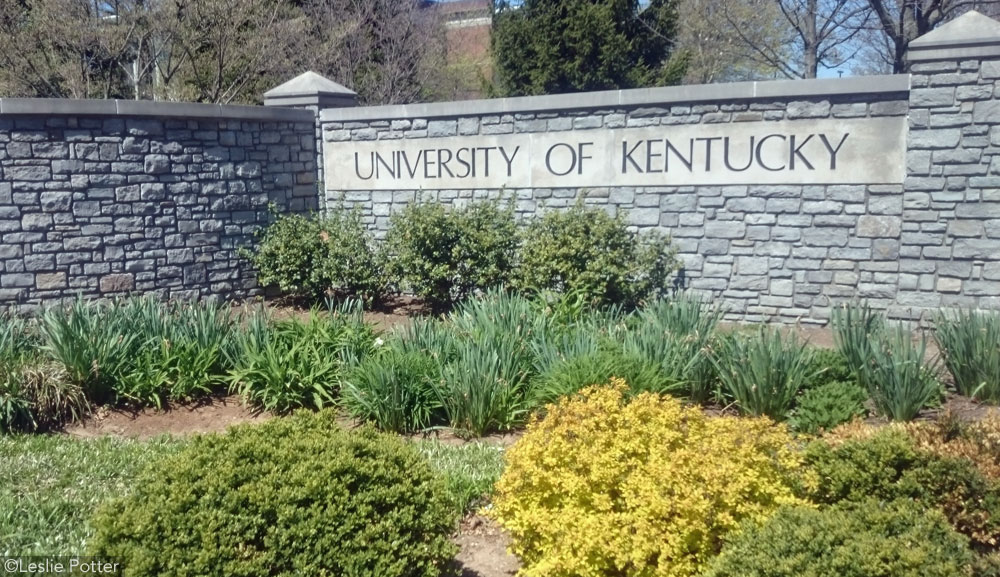
HI: Briefly describe what you do on a day-to-day basis.
EL: My days vary a lot. I usually teach at least one class per day and the rest of my day is spent answering student emails, grading, advising, and meeting one-on-one with students to go over their resumes, cover letters, career interests, etc. I also do a lot of contacting people in the industry to see if they will take interns and to check on how our interns are doing. Other than that, I spend my time planning two events each year, the Ag Equine Program Reception and the UK Equine Career and Opportunity Fair. I also spend time searching for jobs, internships, volunteer opportunities etc. to share with our students and serve on committees.
HI: Do you travel for your job at all? If so, about what percentage of your job includes travel?
EL: I do travel for my job. I travel to annual conferences related to my discipline (Equine Science Society, National Association of Equine Affiliated Academics and National Social Science Association) and to visit existing and potential internship sites. Travel is probably only about 5 percent of my job though.
HI: What is your favorite part of your job?
EL: I love when students get internships or jobs they are really excited about–that is incredibly rewarding. I also love to watch student’s lives and careers unfold after they graduate. As a faculty member, you become so invested in your students that you really care about them and want to help them any way you can.
HI: What is a difficult part of your job?
EL: We have over 330 students in our program and I coordinate at least one internship for each of them. Between that, emails from the industry about opportunities, and all of the classes I teach, I get A LOT of emails every day and it can be quite time consuming and cumbersome to answer all of them.
HI: What is one thing you learned or know now you never would have expected from this job?
EL: My first faculty job was teaching colt starting at a community college in Wyoming. I was there for three years before coming to UK. I love my job at UK so much, but I never realized how much I would grow to love and ultimately miss teaching [colt] training. There’s something so rewarding watching students start colts from scratch, and it also gives them such applied experience managing and being responsible for someone else’s horse. For the teacher in me, it was a unique experience to watch them struggle with teaching things to their horses and then get to reflect on how horses learn things (patience, repetition, release, etc.) compared to how they learn things. In my opinion, it helped them to be better students because they were able to also experience the difficulties and rewards that come with teaching. I don’t know any other subject area quite like it.
HI: What advice would you give people who are interested in pursuing a degree in higher education?
EL: I would tell them to absolutely go for it! Advanced degrees open so many doors. They lead to higher salaries, more opportunities and often better benefits. There really is no better way to invest in yourself than through education. I would tell them that it isn’t going to be easy, there’s a lot of red tape and the further along you go, the more hoops you will have to jump through, but your degrees are something no one can take away from you and they truly pay dividends.
HI: What do you think you would do if you didn’t have this job?
EL: If I didn’t have this job, I would work full time at a Christian equine mentoring program [I’m starting] called Game Changers. Everyone I know who works with horses sees owning them as a privilege and there’s such a special sense of comradery among horse lovers. There’s also a lot of hurting teenagers and orphans here in the United States in need of some extra love and attention. I would love nothing more than to spend more time working to make that program a reality.
Higher education not for you? Maybe being a course builder, a saddle fitter, or something else will capture your interest. Find out! See more Careers in the Horse Industry interviews >>

